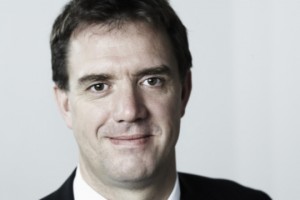By Paul Wilson, chief executive, West of England Local Enterprise Partnership 
Bristol is on a roll. It’s the best place to live in the country. The 100,000 people who engaged in the art of sliding down Park Street sparked a national debate on modernising city centre management. Bristol Food Connections and the BBC’s national food awards broadcast from St George’s Hall are cementing its position as Britain’s food capital.
Green Capital will attract more visitors and investors than ever. When the mayors of the world gather in Bristol next year ahead of the five-yearly UN Climate Change Conference in Paris, they will discuss how cities are more manageable policy- units to tackle climate change than are countries, whose track record is uninspiring.
Bristol’s honesty about the challenges of congestion and social inequality could further develop its profile as one to watch.
Business leaders are taking note. The Governor of the Bank of England, CEO of London Stock Exchange, Lord Mayor of the City of London have all come to see what’s going on, as have political leaders Vince Cable, Danny Alexander and Nick Clegg. World-leading mobile app developer Somo have chosen to grow their business in Bristol, rather than overcrowded silicon roundabout at Old Street, London.
Somo went to Bristol, Manchester and Birmingham looking for talent and a great place to grow their business. They chose Bristol, helped by the Invest in Bristol Bath team and with funds from the LEP’s Going for Growth Fund.
This growing creative energy is reflected in the Local Enterprise Partnership’s joined-up Strategic Economic Plan. Hundreds of people and organisations contributed to this ground-breaking work that has moved the West of England area forward. Eight hundred businesses, four councils, every MP, the four universities and five further education colleges have all signed up to the plan, in an unprecedented level of local agreement. Many of these groups recently attended the first West of England ‘collaboratorium’ to discuss the issues.
With a population of 1.1m people who are more educated, and an annual economy of £25.5bn that is more productive, than any other core-city region in the country, the offer to Government and UK plc, is to invest £0.5bn in economic development here over the next six years and get a return of £0.8bn in incremental taxes, while creating 25,500 jobs. It’s a good deal all round.
This level of joined-up thinking marks a milestone for the area. We are on the front foot and find ourselves working with Government departments that are struggling to assess the plan in a similarly joined-up way.
The best answer for UK plc is to devolve more funds and powers away from overly centralised Whitehall. England is out of sync with the rest of the OECD countries; controlling 95% of tax spend nationally, compared with an OECD average of 75%. The energy in the Bristol Bath city region is contagious; it should be supported with more control over public funds, by the inclusive private-public partnership that is the West of England LEP.





























